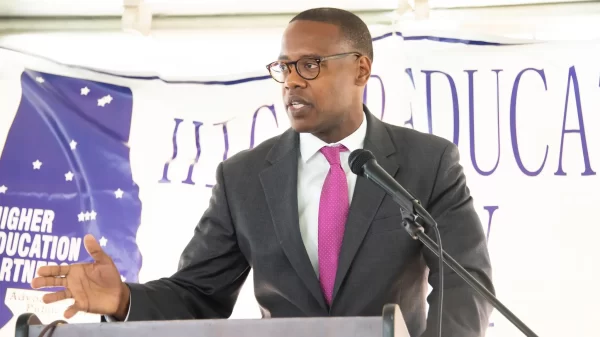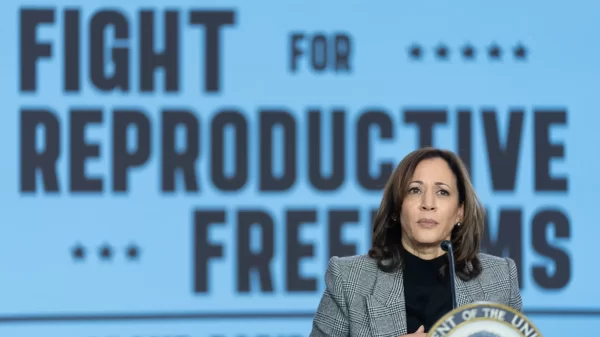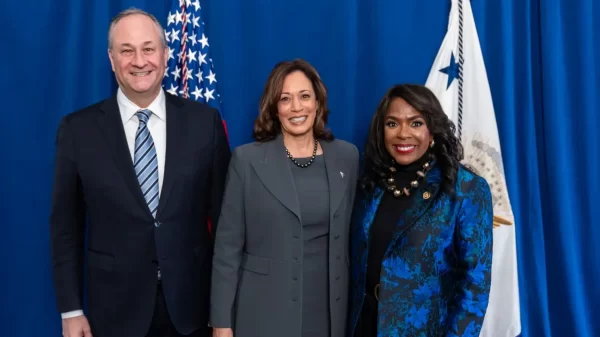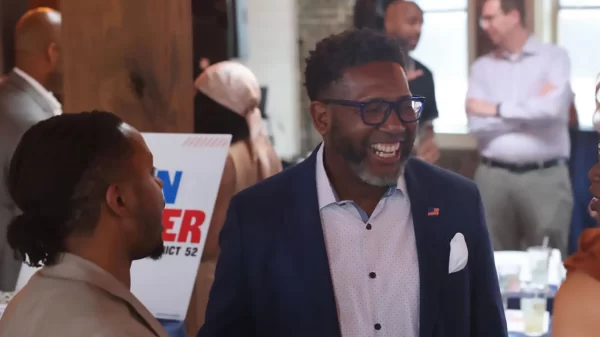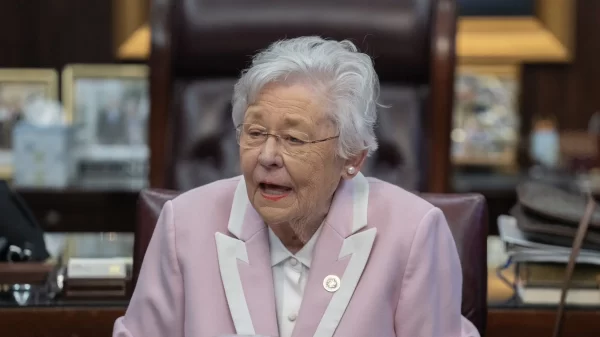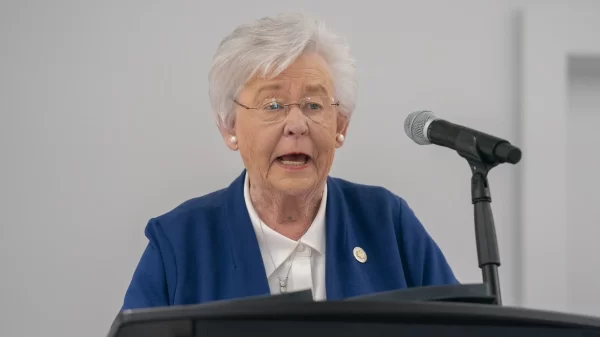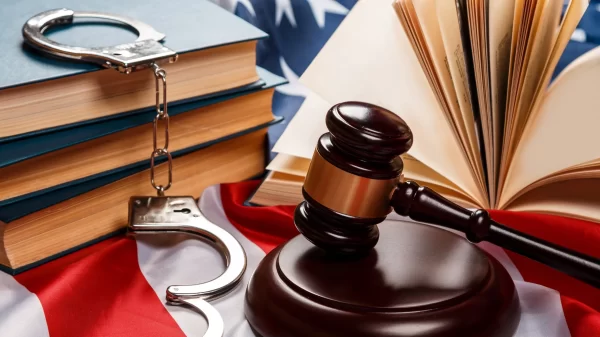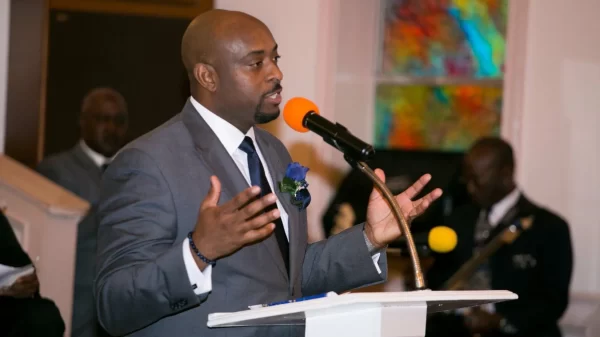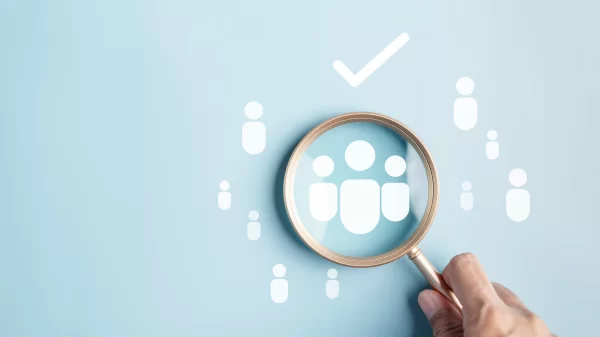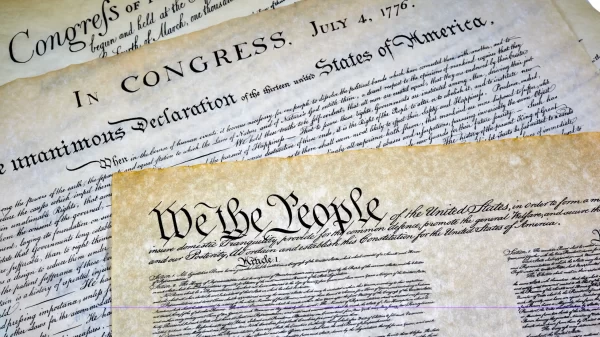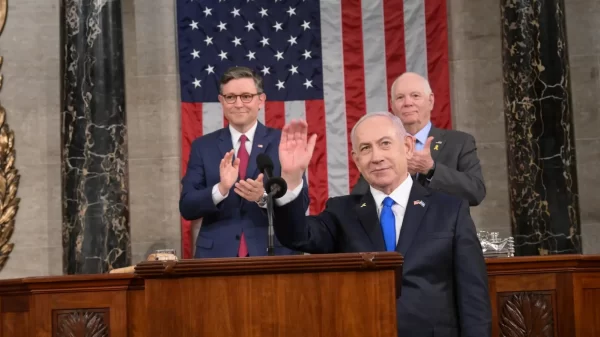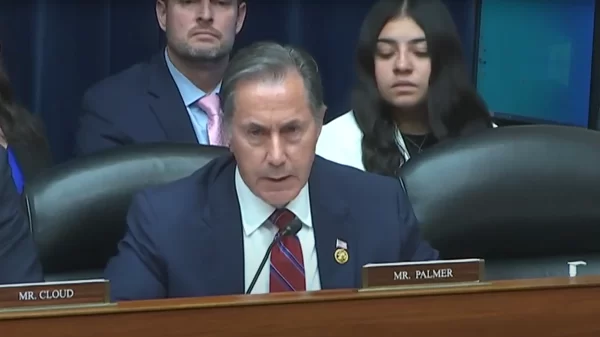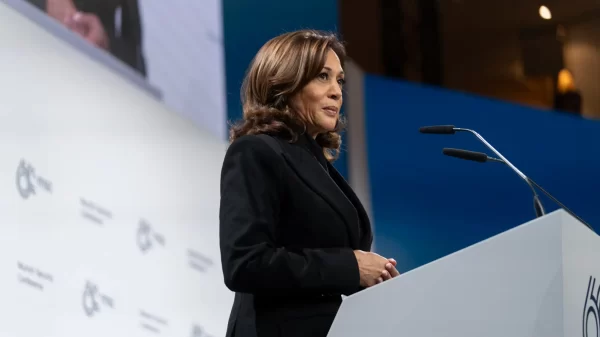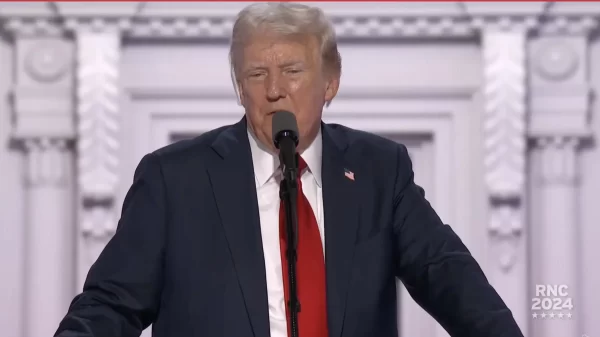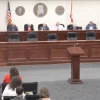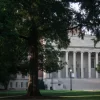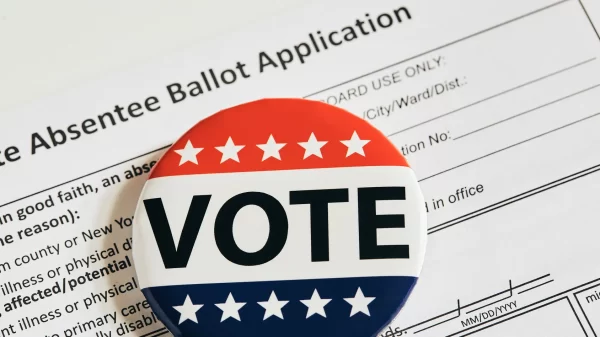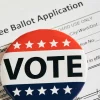Alabama voting rights activists are continuing to raise concerns about a bill sponsored by Rep. Wes Allen, R-Troy, prohibiting election officials from accepting funds or “personal services” from private entities.
Grassroots organizations have expressed fears that the language could chill their efforts to conduct voter education programs that involve public officials, while Allen has rebutted that the bill does not hamper organizations from getting out the vote.
The Alabama Voting Rights Coalition held a press conference Thursday stating that the bill keeps organizations from “filling the gaps.”
“This bill would drive a wedge in between groups that want to pick up some of that slack and fill in that gap and then it would drive a wedge between those groups and community members that might really appreciate those resources,” said Evan Milligan, executive director of Alabama Forward. “I would urge everyone to think about that this is a pattern right now of bills that are really undermining what our democracy and democratic institutions actually exist to do. We saw this with our electoral maps that were voted out of the legislature and signed into law by the governor. We see that as an example in the response to critical race theory. We see that as an example with the things that are happening in response to reproductive rights. We see legislators really taking it upon themselves to define norms that have historically been defined by professional associations or already resolved in courts.”
Allen told The Troy Messenger last week that the statements are “full of falsehoods.”
“HB194 does not, in any way, make it illegal for grassroots organizations to collaborate with local elections officials to educate and help voters ‘get out the vote,’ as they claimed in their press release,” Allen said in the article. “HB194 does make it illegal for these groups to compensate an elected official or to purchase election equipment or to purchase ballots or other elections supplies. If this group would like to have a voter registration drive and invite their local probate judge or secretary of state to participate, nothing in this bill would stop that. It does, however, prevent them from paying that election official to be there.”
The bill is a response to a series of grants in the 2020 election cycle funded by Facebook founder and CEO Mark Zuckerberg. Zuckerberg donated nearly $400 million, most of it distributed through the non-partisan nonprofit Center for Tech and Civic Life. Seven Alabama counties received grant money through the program, with Joe Biden winning each of those counties in the presidential election.
But voting organizations aren’t convinced that the bill will allow them to continue business as usual.
“This is not just about money. It is not just about Zuckerbucks,” said Kathy Jones, president of the Alabama League of Women Voters. “This is about an attack on the ability of people who are trying to provide services to the citizens of Alabama.”
Sam Robson, an Andrew Goodman Ambassador for Vote Everywhere at the University of Alabama, detailed a program he believes would be illegal if the bill becomes law.
Robson said he helped with a board of registrars registration event with the Andrew Goodman Foundation. He said under Allen’s law it would be illegal for that to take place.
He also spoke about working some voting rights restoration events he’s worked with Pardons and Paroles. Robson said that he found while working with formerly incarcerated people who were eligible to vote that they had been told they were not eligible but when the group looked it up in AlaCourt, they were in fact, eligible.
“The whole purpose of Vote Everywhere UA is to provide the sort of cross-institutional infrastructure that is needed to engage and enable students and other voters to participate democratically and this bill criminalizes that behavior,” Robson said.
The bill passed the House on March 10 and could be considered by the full Senate when the Legislature returns from spring break next week.

